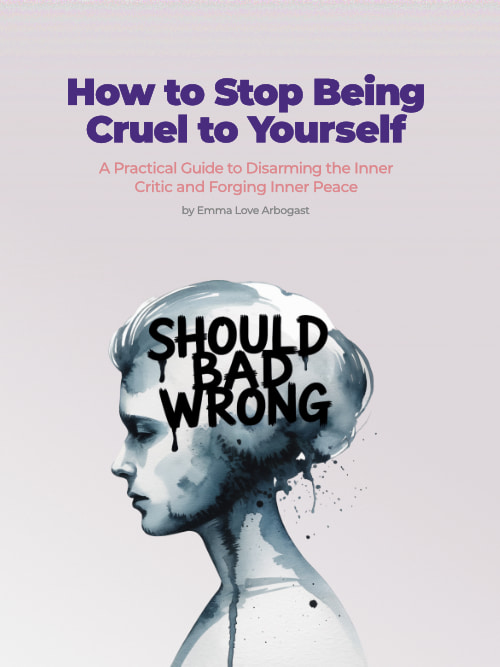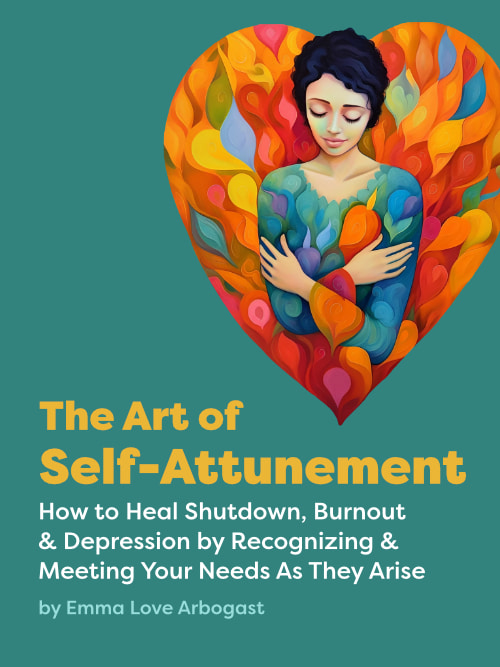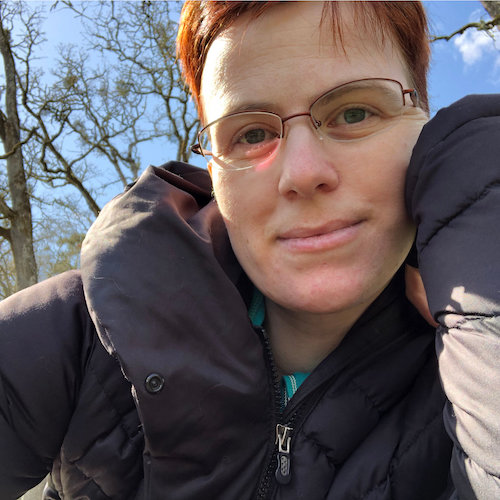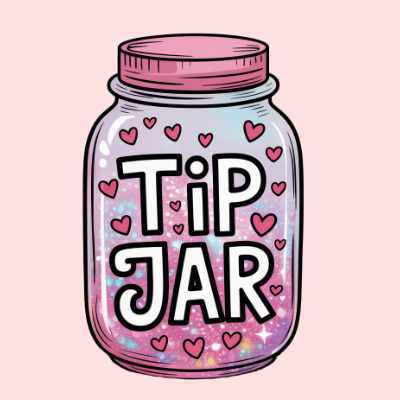How to Meet Your Own Emotional Needs Through Self-Validation
One of the ways I got through my childhood was by constantly fantasizing that one day, someone would come along who would give me all the warmth and nurturing I craved–like magic! This is called a “healing fantasy” and it’s pretty common.
Unfortunately, what helped me cope as a child also set me up to be an emotionally demanding partner (and to be attracted to people who were, in various ways, emotionally unavailable and completely unequipped to meet those demands).
It has taken me a long time to let go of that fantasy, and accept that it’s really up to me to heal these missing pieces of my childhood. Nobody is going to rescue me from my feelings. Nobody is going to see through my anger and criticalness to my hurt and scared Inner Child. Other people just want me to deal with things like a grown-up, the same I want them to deal with things.
OK, but how do you do that?
One day I decided to just Google, “How to meet your own emotional needs”. I mean, why not?
I found this page, which gives the prescription I’ve heard many times before, talk to your inner child and give it the parenting it didn’t get as a child.
Find out what your mind needs mentally and emotionally. Does it need praise, admiration, reassurance, validation, to feel special, appreciated, valued, understood, wanted, seen, heard, safe, loved? Ask it and then meet those needs by talking to it as you would a child.
I have done this kind of thing before, but something more specific clicked yesterday. I often have dialogues with various parts of myself in my journal, but I have mostly focused on using empathy to try to “figure myself out”–to understand what was going on when I was avoiding something, which I do a lot. I hadn’t actually specifically tried to be reassuring or nurturing to myself.
Now, here is the bugaboo that always comes up: can talking to yourself really feel as good as someone else meeting those needs for you? Is self-validation going to feel real or is it going to feel like you are just trying to make yourself feel better? I always assumed it would be more like the latter, and kind of pointless.
And, it makes sense that I would feel that way. After all, the only reason I have all these emotional issues is that I didn’t get this kind of caretaking as a child. So of course my brain is predisposed to look for it outside myself, because that’s where it ought to have come from.
But that doesn’t actually mean self-validating can’t work. And I figured I had nothing to lose.
So I just started writing down everything that I always wanted to hear. Like…
Your feelings make sense and are normal.
- It makes sense why you would feel X about Y, anyone would feel that way.
- It’s not wrong to want X.
- It’s OK to want X, most people do.
- It totally makes sense why you would avoid X because Y happened.
- It makes sense to be scared and unsure in that situation.
- It’s ok and normal to not feel safe when things don’t make sense.
- It makes sense that you’re sad and hurt that X didn’t happen.
- It’s not wrong that you believed X when that’s what seemed to be true at the time.
- Anyone would feel hurt in that situation.
- It makes sense that you are confused by their behavior.
- Of course you wonder what you could have done different, that’s normal. It’s natural to look back and feel unsure.
- It’s normal to feel scared and overwhelmed when X happens.
Your sense of injustice makes sense.
- You’re a good person.
- You didn’t deserve X bad thing happening to you.
- You deserve all the good things.
- It’s not fair that X happened.
- You were doing the right thing.
- You were doing the best you knew how to do, and it sucks that you weren’t seen for that.
- You did the right thing even if it didn’t turn out how you hoped.
- You couldn’t have prevented this and it wasn’t your fault.
- It wasn’t fair for them to have those expectations of you.
- That wasn’t your job to do.
- It makes sense that you would want them to acknowledge their behavior and how it affected you.
- Of course you want people to be honest with you, everyone wants that.
- It makes sense that you would keep trying to fix it and make it right.
I’m sorry.
- I’m sorry that happened to you.
- It sucks that it turned out that way.
- I wish you could have had everything you wanted.
I see you.
- I get it.
- You just wanted X, Y, and Z and it’s OK to want that.
- I know how much X mattered to you.
It’s OK to make mistakes.
- You don’t have to judge yourself for making mistakes.
- Mistakes are how we learn.
- You had never been in that situation before, and you didn’t know what to expect.
- Things turned out so different than you imagined, you had no way to know or prepare for that.
- You have learned a lot and that is valuable.
- You were young when X happened, you didn’t know yet what to look out for.
- You did your best.
I value you.
- There is so much right with you.
- You are loving and kind and generous.
- You try so hard because you care and that’s good.
I made these into generic statements because, you know, privacy, but when I was journalling, I was specific about what I was feeling, why I felt it, what happened, why it mattered to me, etc. I wrote for hours, not just about recent things, but about many things from my past that I never really got validation or acknowledgement from anyone around.
And it worked. That searing pain that I often walk around with in regards to certain situations was alleviated. I had good dreams and woke up happy. I feel settled and calm and content today.
But this is a practice, and I’m going to need to do it over and over and over until it becomes second nature. This is the application of “love yourself”. Love is an activity, not just a feeling.
Over time, I think this will create a kind of “Inner Validator” which sounds a lot better than an Inner Critic! Your Inner Critic was created through constant repetition of a critical variety, so an Inner Validator should be possible to create the same way. You are just training your brain into a better automatic response to painful feelings.
So what about the “Is it as good from yourself as from someone else” question?
Actually I think it might be better from myself.
Don’t get me wrong, there are certain acknowledgements I would love to hear from other people, and certainly I would like certain people in my life to behave in ways that make a lot more sense and feel better than they currently do. But what I can offer myself that nobody else can is that I know all about myself already.
I know exactly what would feel good to hear in a way that nobody else could possibly know. I understand my entire life history. I was there for all of it. I know how it all affected me. I also know everything I was hoping for and trying to accomplish in every situation. So I can get right to the heart of everything I’m feeling and needing. There is no way anyone is ever going to know me that well.
Someone else would have to spend a lifetime studying me to be able to be that precise. And, OK, maybe that is what I wanted in a partner, but that’s not real. I’m the only person who would know how all the events of my life fit together and make up my internal emotional landscape.
This echoes the work of Sarah Peyton, who discusses the “loss of accompaniment”:
Understanding trauma means understanding that it’s not the event itself that creates trauma. It is how alone we were in it.
I was always an emotional child, and nobody in my family seems to understand emotions at all. The overwhelming message I got was, “Your emotions are wrong and too much and you shouldn’t have them.”
I didn’t learn how to be warm to myself because nobody was really warm to me. And on top of that, every emotion I had, I was made to feel was crazy and wrong and irrational and ought to just go away. It was a very invalidating environment, so it makes sense that a lot of what I need is just pure validation: You make sense, your feelings make sense, they are normal.
Complex trauma, a.k.a. C-PTSD, develops when your childhood was full of constant major or micro traumas. Time after time, confusing and overwhelming emotional situations occurred and nobody helped you understand how you felt about any of it. So you learned to just get by, however you could. But what healthy children learn, through experiencing it over and over, is to feel valid in their own emotions. Thus, self-validation is a form of reparenting.
So yes, giving validation and nurturing to yourself does work. It works really well and I highly recommend it. And on top of it being precise and comprehensive, self-validation is available 24/7!
I can already feel that this is alleviating the constant pressure I feel to try to get my partner to give me validation and listening, which fuels resentment when they aren’t able to. Which should make me less demanding and just all around more pleasant to be around!
Update from 2024 (three years later):
Honestly, I think that learning how to meet my own emotional needs through self-validation has been the single best standalone intervention I’ve done in terms of my mental health. It resolved a lifetime of emotional dysregulation almost overnight, that apparently had been there since I was a child simply because my Dad was so incredibly emotionally invalidating. (He couldn’t handle my strong emotions so he would try to logically talk me out of them—which just made them worse and added shame). Over the years, I learned to invalidate myself in the same way, so the pattern just continued. But doing the above exercise in a very concentrated way really relieved that pressure. Then it was just a matter of reminding myself to do it whenever I felt upset about anything.
After a few weeks of doing it regularly, it became a habitual stance of, “Of course my feelings are valid”, and that has continued. It permanently changed my relationship with myself and my feelings.
Meeting my own needs for validation has also made me almost impervious to other people’s opinions. It’s just a sense of, “It’s fine to be myself, actually”. To not need external validation is incredibly liberating.
Self-love is a set of skills you can learn

Stop Being Cruel to Yourself
$2.99


Hey there! If you're new here, welcome to the Emmaverse! 🌈✨
About me: I'm autistic/ADHD and I write about how to be free and happy from the inside out.
Keep in touch?
Self-Liberation Society


I wanted to highlight so much of this article and will be saving it as a resource. I think I too was not emotionally validated in the ways I needed but was at a loss for how to start meeting that need myself, so thank you for sharing this big list.
I so appreciate you taking the time to capture this and being honest about your personal walk through this area of growth. I feel like I’ve been walking around in a confusing mist of not making headway of fully understanding this about myself (and how it plays out in my relationships) and this has really helped. I ask the same questions you do. I’m going to try the journaling, so thanks for the detailed prompts.. it’s like handing someone a long overdue language. Thank you for walking through the muddy mess of getting to the other side cos, as you see.. there are many of us who want to know the “how” you found. Bless you for sharing the light Emma. ✨
WOW! Nearly everything in here resonated with me and gave me hope that I can learn to validate myself, that it will eventually feel as good as (or better) than the validation I desperately crave/demand from others, and that I can set my relationships free of the pressure to fulfill that need for me. Ironically, I found this page by Googling almost the exact same phrase you mentioned you Googled, so I guess you’ve come full circle, ha ha. Thank you so much for sharing this. I am bookmarking it to help me in the early going of trying to develop my Inner Validator!
Awesome! Yeah, this skill was a real game changer for me. And yeah, that’s funny about Google but it makes sense!
Omg this is extremely helpful. I had tears in my eyes as I was reading the self-validating sentences 😭 this is exactly what i needed to hear as i felt emotionally alone as a child
Wow. I needed this so much. Such a great addition to my daily practice of expressive writing and meditation. Thank you!!!! ❤️